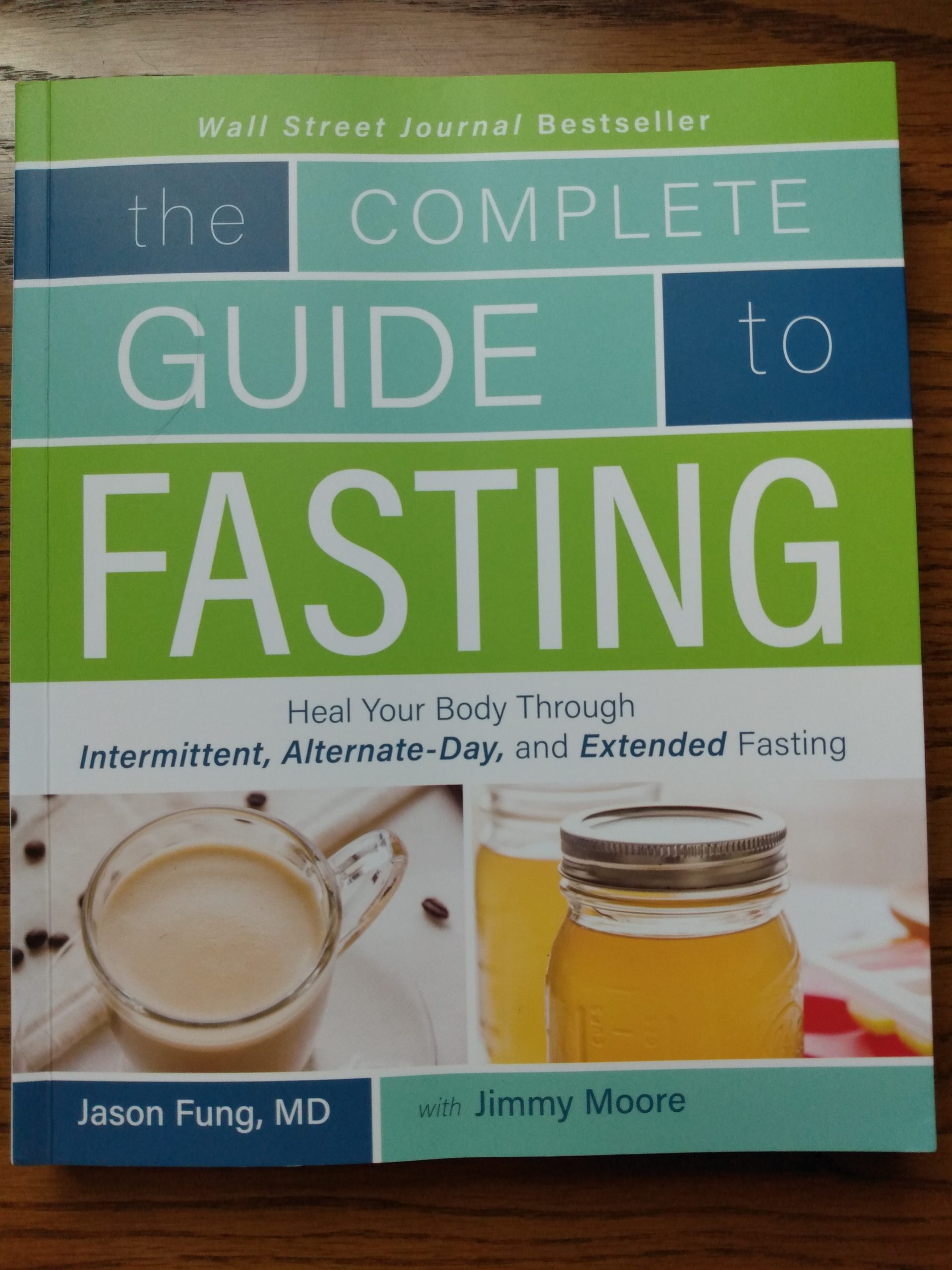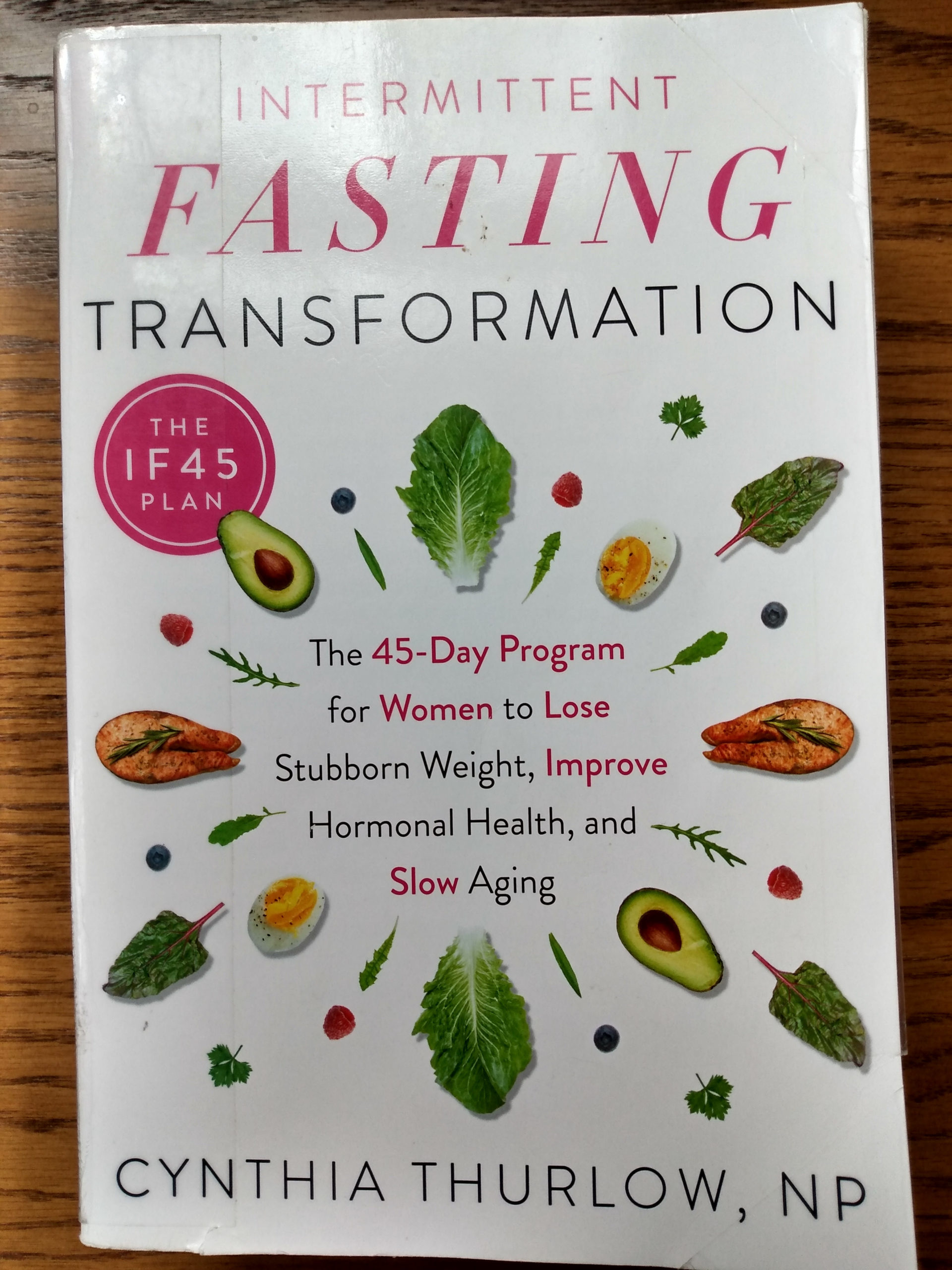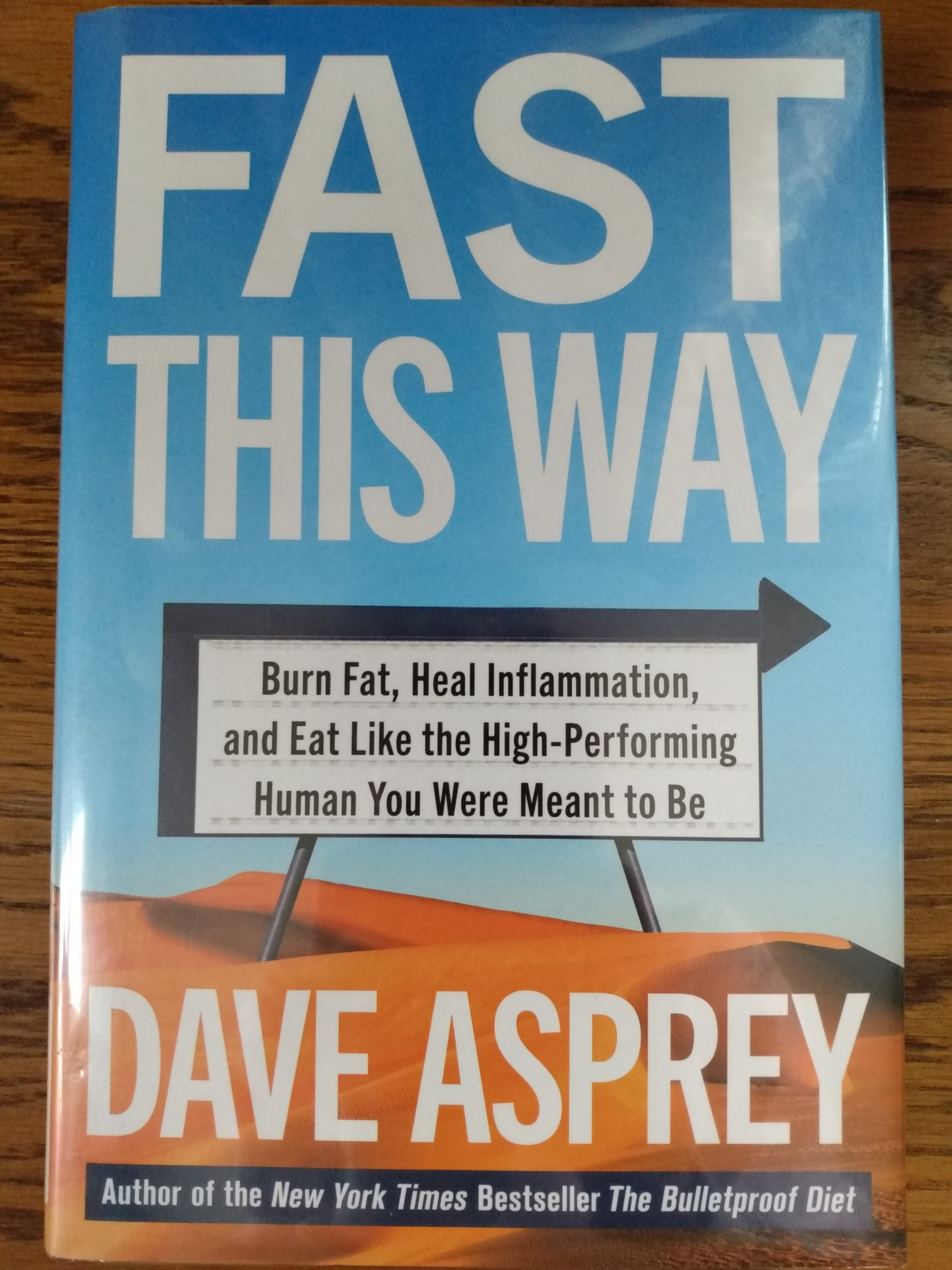
Women: Intermittent fasting – is it right for you?
- Amy Bo

Perhaps you have heard that for women intermittent fasting isn’t such a great idea.
Or maybe you heard that everyone should be doing it.
There is so much information out there that it is hard to weed through it all to know what is right for you.
So, is intermittent fasting right for you?
Well, like nearly every answer to every health question, it depends!
One of my clients came to me already eating pretty healthy.
She was in her mid-40s and couldn’t seem to get rid of the daily fatigue she had.
She woke up tired and dragged herself out of bed no matter how many hours of sleep she got.
She had an afternoon slump and struggled through the evening hours of dinner and keeping up with the kids’ activities.
She had a few nagging pounds that she wanted to lose.
And there was that annoying bloating that made her look a couple months pregnant.
Welcome to mid-life is what she had heard.
This is just how things are.
Just muster up and keep going along.
Your body is changing and there is really nothing you can do about it.
That was not an answer she was satisfied with.
So, we played around with some things.
Like an experiment.
We took it slow and steady, nothing extreme.
First, we made sure her body was getting nourished with enough food – she in particular needed to increase the amount of protein she was eating at her meals. (Curious if you might need to also increase your protein intake? Check out this post)
She had been snacking throughout the day, nothing extreme, just some bites of food here and there between meals.
Sometimes she was hungry, but mostly it was just out of habit.
With her body being well nourished, she started doing a 3-4 hour fast between meals.
She had been eating a snack before bed around 10 pm mostly out of habit, but sometimes she felt hungry.
Now that she was eating enough during the day, she was ready to focus on a longer overnight fast.
At first, her fasting window was from 10 pm until 7 am, so 9 hours. We gradually increased her fasting window to 10 hours, then 11 hours, then 12 hours consistently. Occasionally increasing it to 13 or 14 or even 15 hours overnight.
Nothing extreme.
We went slow and steady with our eyes on the long-term goal, making these changes sustainable.
Do you wonder – did this even make a difference?
Yes, it did!
Energy was the first thing she noticed.
She started waking up before her alarm clock even went off in the morning.
And not just waking up, but she was alert and feeling good and ready for the day.
Her energy was good all day long.
No more dragging herself through the afternoon and evening.
She slept great all night.
Her clothes started fitting better.
She noticed the bloating hardly ever was there.
She lost those few nagging pounds.
She felt mentally sharper.
She didn’t need to rely on will power so much to resist cravings.
And she felt good and strong.
Her mood was steady.
She did not feel hungry during her fasting hours.
She was not starving herself
And she didn’t feel deprived
Like this client, for many women intermittent fasting is a key component to health when done well.
Doing it well is critical!
Let’s contrast this with another client who I recently had.
She had heard this very thing – that for women, intermittent fasting was the key to health.
So, she jumped right in.
Every day, she was eating an early dinner at 5 pm, and not eating anything else again until noon the next day.
At first it sounds like she’s really got this intermittent fasting down.
Until you hear about the details –
She was super irritable, and her husband would definitely agree.
She was waking every night around 3 am and couldn’t fall back asleep.
She was completely exhausted.
She felt puffy and none of her clothes fit right.
She had a dullness to her skin.
Her PMS was out of control.
And, she had actually been gaining weight!
A look at her food journal revealed a lot.
She was fueling up on 5 cups of coffee each morning in order to be able to hold off eating until noon.
Then at noon she was so starving she usually grabbed take out at the nearest fast-food place — chicken tenders and a side salad was her usual.
In the afternoon she was starving and often had ice cream because her cravings were so bad, and she couldn’t resist.
Then at dinner she kept things light since her main goal was to lose weight, so that meant eating some cheese and crackers and maybe a sliced up red pepper.
She thought she was doing everything right – intermittent fasting and cutting calories, but everything was going wrong.
Good thing she came to me.
What is intermittent fasting?
Fasting is the voluntarily absence of eating.
Intermittent fasting puts the focus on when you eat more so than what you eat.
It involves eating less often but does not necessarily mean eating less.
This is important.
There are many different lengths of fasts – from a few hours between meals to overnight periods to whole day fasts to extended fasts.
This blog will primarily address between meal and overnight intermittent fasting.
If you are interested in doing extended fasts, consult a medical professional.
Here are 5 things to know about intermittent fasting
Fueling your body with good nutrients is key.
It seems kind of opposite to what one would think, but what you eat is a key part of fasting.
Your body needs to know that it is well nourished.
That will allow it to burn fat while you are fasting.
If you have a daily calorie restriction and your body isn’t metabolically flexible (able to burn both sugar and fat), your body will store energy, not burn it.
And with less calories available your metabolism slows way down.
Calorie restriction isn’t necessarily the way to go for good health.
During fasting, metabolism stabilizes or even increases and hormones balance as the body shifts from burning sugar to burning fat.
Your eating doesn’t have to be perfect in order to fast, however you do need to make sure you get enough good, real food during your eating window.
Side note: how do you know if you are metabolically flexible?
That means your body can switch back and forth between burning sugar and burning fat.
Signs you are a sugar burner:
Constantly looking for food
Less able to feel satiated
Insistent hunger (grazing)
Increased carb cravings and intake
Weight doesn’t change when working out
Carrying extra weight around mid-section
Signs you are metabolically flexible:
Consistent energy all day long
Not hungry between meals
Sometimes clients say they are fasting because they skipped lunch since they didn’t get around to it, then ate a candy bar for an afternoon snack because they were starving.
Technically this is fasting since there was a time period of not eating.
But, for fasting to be the most beneficial, there is a mindset and intention of planning to fast and preparing the body to fast by fueling it with good food.
Fasting is not about randomly skipping meals here and there then eating junk out of desperation.
3. Start slow and go steady
Fasting is a stress on the body similar to how exercise is a stress on the body.
Small amounts of good stress at the right time are beneficial.
Too much stress too fast can cause problems.
The best way to start fasting is to start small.
Calculate your current eating window and decrease it by a little bit every few days.
Your current eating window is from your first bite of food or drink in the morning until the last one at night.
How slow or fast you go depends on the current state of your health.
Try to be somewhat steady and consistent as your schedule allows.
You can also work on getting to a 3-4 hour fasting window between meals.
You might wonder – what counts as a bite of food or drink?
Well, it depends on what your goals are for fasting and how slowly you are easing into it.
Drinking water or black coffee or tea will not end your fast.
There is “clean” fasting and “dirty” fasting and different benefits with each of these ways of fasting.
To learn more about this check out the resources at the end.
4. Follow natural rhythms
There is a daily rhythm to fasting – a good rule of thumb is to eat when the sun is out and fast when it is dark.
This has the bonus of aligning our bodies with the circadian rhythm of light.
This leads to a seasonal rhythm of having a longer eating window during the summer and a shorter eating window during the winter.
There are also natural monthly rhythms.
This is especially important for women. Intermittent fasting plans should take into account your monthly cycle.
For women the best times to fast are the first 3 weeks of your cycle, with the first day of bleeding counting as day 1.
The week before your period you may feel more hungry and want to eat more, which may require an increased eating window. Limiting eating during this time could deplete much needed nutrients and hormones for this phase of your cycle.
Then there is the larger life cycle of a woman to consider, fasting is not recommended for women who are pregnant, nursing, or are likely to become pregnant.
Women who are still having a monthly menstrual cycle should not fast to a point that causes them to stop menstruating.
Women in perimenopause (when their cycle has started to become irregular), especially need to pay attention to their stress levels.
If there is a situation with a lot of stress, postpone fasting until the stress is more manageable.
In menopause (time after 12 months have passed without having a period), there is the freedom to fast without having to worry about your monthly cycle.
Learn to listen to your body
Fasting is a stress that can be more harmful than beneficial for some people at some times.
Some people should not fast:
Women who are pregnant or could become pregnant
Women who are breastfeeding
Children and teens under 18 years old
People with a low body weight, BMI less than 18.5
People with an eating disorder
People who are on medications should consult their doctor before fasting
There are internal stressors to consider – things like overall health, level of inflammation, how you are fueling your body or not, where you are in your menstrual cycle.
Then there are external stressors to consider – things like work load, circumstances going on around you, relationship stress.
While some discomfort is okay and can even be good for growth and strengthening our bodies, you should generally feel good while fasting.
These are signs that you need to reevaluate your fasting, if you are:
Binging on carbs to break your fast
Irritable
Hangry
Gaining weight
Not sleeping well
Feeling more tired
Losing muscle
Feeling cold
For all women, intermittent fasting is definitely something to consider!
One of the greatest things about fasting is that if you end up super hungry or not feeling well, all you need to do is eat.
For women intermittent fasting can be one of the most useful tools for your health.
It is free!
It is easy!
It doesn’t involve adding things to your to -do list – in fact it involves not doing something!
It is flexible.
It can and should work to fit around your schedule
Notice how I said intermittent fasting is something for all women to CONSIDER.
It is not for all women.
Some things like fasting can be so beneficial to one person and actually harmful to another.
It would be nice to have a simple formula to go by with exact steps to take.
But we are not mass produced robots where one thing works for all.
Our bodies are each intricately knit together and uniquely created.
This requires a good balance of knowledge along with wisdom.
There is definitely an art to nourishing your body in order for it to function well.
Now what is your next step?
-Try fasting slow and steady if it seems like something you could do after reading this blog
-Check out some books and podcasts (suggestions are listed below) to learn more about fasting
–Work with me so I can help you navigate the details of knowing how to best support your body and what it needs related to your goals
Any questions?
Just let me know.
There is so much to say about fasting, I definitely didn’t cover everything.
Here are some resources to check out

The Comprehensive Guide to Delay, Don’t Deny Intermittent Fasting By Gin Stephens

Heal Your Body through intermittent, Alternate-Day, and Extended Fasting by Jason Fung, MD with Jimmy Moore

The 45-Day Program for Women to Lose Stubborn Weight, Improve Hormonal Health, and Slow Aging by Cynthia Thurlow, NP

Burn Fat, Health Inflammation, and Eat Like the High-Performing Human You Were Meant to Be by Dave Asprey
https://www.thechristiannutritionist.com/podcast/01
https://www.thechristiannutritionist.com/podcast/74
https://www.thechristiannutritionist.com/podcast/170
https://www.thechristiannutritionist.com/podcast/181
4 Responses
Fantastic information here, Amy! I really appreciate that you discuss how some people shouldn’t fast. Thank you for a balanced perspective.
Thank you, Victoria! I am very thankful for your help and encouragement!
This was a really grounding and informative post about IF. Thank you, Amy Bo! 😊
Thank you for your encouragement, Danee!